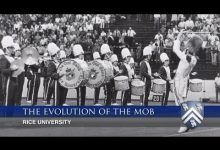John U. Bacon: Canada needs Stanley Cup back; College Football Playoff expansion “inevitable”

John U. Bacon: Canada needs Stanley Cup back; College Football Playoff expansion “inevitable”
John U. Bacon, a renowned sportswriter, author, and historian, offers compelling commentary on two critical subjects shaping the future of North American sports: the cultural significance of the Stanley Cup and the inevitable expansion of the College Football Playoff. His observations touch on national identity, sports evolution, and the shifting landscape of fan engagement, emphasizing the need for reflection and adaptation in hockey and college football alike.
The Stanley Cup is not just a trophy; it is a symbol deeply intertwined with Canada’s national identity and hockey heritage. John U. Bacon stresses that the Stanley Cup belongs to Canada, both culturally and historically. Originally donated in 1892 by Lord Stanley of Preston, the Governor General of Canada, the Cup was intended as a Canadian championship prize. Over time, it evolved into the NHL’s ultimate prize, but its roots remain firmly planted in Canadian soil.
For many Canadians, hockey is more than a sport; it is a cultural cornerstone that unites communities, reflects values such as teamwork and perseverance, and embodies a unique national spirit. The Stanley Cup, therefore, carries immense symbolic weight—representing Canada’s rich hockey tradition and pride.
### The Cup’s Journey South
With the NHL’s expansion into the United States throughout the 20th and 21st centuries, the Stanley Cup has increasingly found itself residing in American cities. Teams like the Chicago Blackhawks, Pittsburgh Penguins, and most recently, the Tampa Bay Lightning and Colorado Avalanche, have brought the Cup south, fueling debates about where the trophy truly “belongs.”
Bacon argues that while the Cup has been embraced by hockey fans across North America, Canada’s passion for the game and historical connection to the Stanley Cup make its frequent residence in American cities a cultural loss for Canada. He highlights the recent lack of Canadian teams winning the Cup, which has left Canadian fans yearning for a return to glory.
### Why Canada Needs the Stanley Cup Back
1. **National Pride and Identity:** A Canadian team hoisting the Stanley Cup would reaffirm the nation’s deep connection to hockey and the sport’s cultural importance.
2. **Inspiring Future Generations:** A Canadian championship serves as motivation for young Canadian players and fans, encouraging participation and engagement with the sport.
3. **Revitalizing the Canadian Market:** Success on home soil can boost hockey’s popularity, support grassroots programs, and energize fanbases across Canada.
4. **Honoring Tradition:** Bringing the Cup back home respects its origins and pays homage to the legacy of Canadian hockey.
Bacon’s call to action is clear: Canada needs the Stanley Cup back not just for sports bragging rights but to preserve a vital piece of its cultural fabric.
—
## The Shifting NHL Landscape and Canadian Teams
The NHL today is a transnational league, but Canadian teams face unique challenges. Market size disparities, ownership structures, currency fluctuations, and salary cap constraints have made sustained success difficult.
Bacon points out that while Canadian franchises like the Toronto Maple Leafs, Montreal Canadiens, and Vancouver Canucks have passionate fan bases, recent playoff performances have been underwhelming compared to some U.S.-based teams. He urges Canadian teams to innovate, invest, and adapt to return to Stanley Cup contention.
—
## College Football Playoff Expansion: An Inevitable Evolution
Transitioning from hockey to college football, John U. Bacon turns his attention to the ongoing debate surrounding the College Football Playoff system in the United States.
### The Current Format and Its Limitations
Since its inception in 2014, the College Football Playoff has featured a four-team bracket designed to determine the national champion in the NCAA Division I Football Bowl Subdivision (FBS). While a significant improvement over previous poll-based methods, the current format has faced criticism for being too exclusive, leaving many deserving teams on the sidelines.
Bacon explains that college football’s landscape has changed dramatically in recent years, with more competitive teams, conference realignments, and increased fan expectations. The four-team playoff no longer adequately accommodates the breadth of talent and parity in the sport.
### Why Expansion Is “Inevitable”
John U. Bacon argues that expanding the College Football Playoff is not a question of if but when. Several factors contribute to this inevitability:
1. **Fairness and Inclusivity:** A larger playoff allows more teams from different conferences, including Group of Five schools, to compete for the title, addressing concerns about fairness.
2. **Revenue and Exposure:** Expanding the playoff increases TV ratings, advertising revenue, and exposure for programs, benefiting the NCAA, conferences, and schools.
3. **Fan Demand:** College football fans crave more high-stakes, meaningful games, and an expanded playoff satisfies this appetite.
4. **Conference Realignments:** As conferences evolve and expand, so does the need for a playoff system that reflects the new competitive realities.
Bacon highlights that the momentum for expansion is building among stakeholders, including conference commissioners, athletic directors, and broadcasters.
### Possible Expansion Models
Several models for expansion have been proposed, ranging from 6 to 12 teams or more. Bacon discusses the pros and cons of these formats:
* **Six-Team Playoff:** Adds two teams with byes for the top seeds, balancing exclusivity and opportunity.
* **Eight-Team Playoff:** Provides quarterfinals and a more inclusive field, offering greater competitive balance.
* **Expanded Formats (10-12 Teams):** Allows even more participation but raises logistical challenges around scheduling and player welfare.
Bacon advocates for a model that balances competitiveness, player safety, and tradition.
—
## Implications for College Football
### Impact on Players and Coaches
An expanded playoff increases opportunities for teams but also intensifies the season’s physical and mental demands. Bacon emphasizes the importance of considering player welfare in scheduling additional games, ensuring adequate rest and preparation.
Coaches would face new strategic challenges, managing deeper playoff runs and broader competition.
### Impact on College Football Culture
Expansion could democratize college football, giving more schools and regions a shot at national prominence. Bacon envisions this as a positive development that enhances the sport’s vibrancy and national appeal.
However, he cautions that traditions like rivalry games and conference championships must be preserved and integrated within the new system.
### Economic Impact
From television contracts to ticket sales, playoff expansion promises significant economic benefits. Bacon notes that these financial incentives will be key drivers behind the move, but they should not overshadow the integrity of the sport.
—
## Connecting the Two Worlds: Sports as a Reflection of National and Cultural Identity
John U. Bacon’s commentary on hockey and college football reveals a deeper theme: sports are more than games—they are expressions of identity, community, and evolution.
The Stanley Cup’s significance to Canada symbolizes a longing to reclaim cultural heritage and pride through sport. Meanwhile, the College Football Playoff’s expansion reflects America’s dynamic and growing sports landscape, adapting to changing realities and demands.
Both cases highlight the balance between tradition and innovation, underscoring the need to honor history while embracing progress.
Embracing Change While Honoring Tradition
John U. Bacon’s insights serve as a reminder that sports are living, breathing institutions that must evolve to remain relevant. Canada’s desire to see the Stanley Cup return home speaks to a profound connection to hockey’s roots and national identity. At the same time, the inevitability of College Football Playoff expansion reflects a necessary adaptation to the modern sports era.
For Canada, the message is clear: reinvest, innovate, and reignite the passion that made hockey the nation’s game. For college football, it is to expand thoughtfully, ensuring that growth enhances competition without compromising the sport’s core values.
Ultimately, Bacon’s perspectives challenge fans, administrators, and athletes to engage with these changes thoughtfully, preserving the soul of sport while embracing its future.









